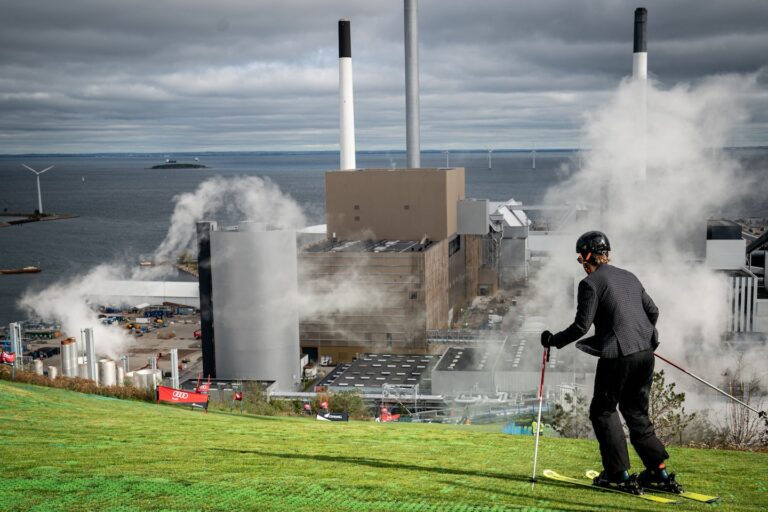The Danish capital’s tourist board, Wonderful Copenhagen, is launching a pilot program to reward visitors for their environmentally conscious behavior. Starting July 15, participants who take part in sustainable activities will receive thank-you gifts like free kayak rentals or coffee and danishes.
The new initiative, CopenPay, is simple: join in on environmentally friendly initiatives and receive rewards from 24 participating businesses and institutions. It’s open to tourists and locals alike.
For example, the National Gallery of Denmark hosts a workshop where you can collect plastic waste and transform it into jellyfish art. Cycle or take public transport to the Amager Resource Centre and enjoy 20 extra minutes of skiing time on Copenhill, the artificial slope on the roof of the power station (non-skiers can take the elevator to the top for free). Volunteer at Owens-Harve, the largest urban garden in Scandinavia, or the historic gardens of the Karen Blixen Museum, where you’ll enjoy free vegetarian meals and free museum admission, respectively.
“We want to turn tourism into a force for positive change when it comes to sustainability,” says Ricke Holm-Petersen, communications director at Wonderful Copenhagen, “but we also want visitors to have memorable and enjoyable experiences.”
Holm-Petersen said the program is self-reporting, but some venues may ask for proof like a photo of the bike or a public transport pass. The program will run until August 11th. Depending on its success, it could return next summer with more activities and a longer duration.
Destinations around the world are trying creative ways to promote environmental responsibility and get visitors involved in the movement. The Málama Hawaii program allows travelers to earn hotel discounts and free nights by volunteering; for example, guests who donate their time to the Pacific Whale Foundation receive a fourth night and breakfast for two free at the Hana-Maui Resort. (On a related note, last month the Hawaii Tourism Authority announced a certification system to certify businesses for their sustainable practices; 13 businesses have received the designation, including major airlines, tour boat companies, restaurants and the Bishop Museum.)
In 2017, Palau instituted the “Palau Pledge” that tourists must sign upon entering the country. The agreement to “conserve and protect” the islands is stamped in visitors’ passports.
Hotels are also encouraging guests to spend less: Yotel properties that have signed up for the Purple Goes Green plan offer guests a food and beverage credit for each day they skip housekeeping, and Best Western Hotels and Resorts has a similar program where guests can earn points and dining vouchers.
Randy Durband, CEO of the World Council on Sustainable Tourism, praised programs that reward good behavior rather than guilt people into acting responsibly or scold them for poor performance.
“Copenhagen deserves some credit for trying to make bad behaviour fun and give it some incentives and benefits rather than lashing out at it,” Durband said.
Holm-Petersen has even bigger ambitions for CopenPlay: she sees it as an agent of change.
“We hope that tourists will be inspired to make more conscious choices about environmentally friendly behaviour when they return home and will do the same in other tourist destinations,” she said.

